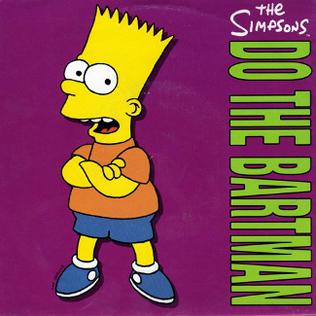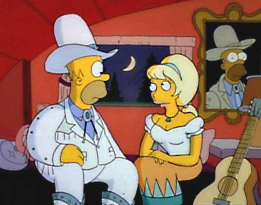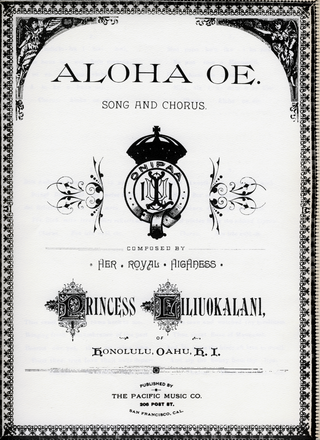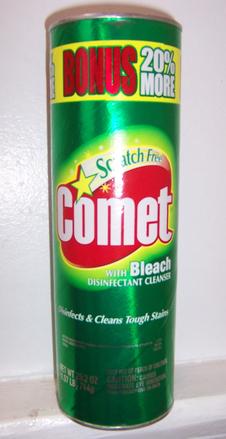The "Colonel Bogey March" is a British march that was composed in 1914 by Lieutenant F. J. Ricketts (1881–1945), a British Army bandmaster who later became the director of music for the Royal Marines at Plymouth. The march is often whistled. During the Second World War, British soldiers sang the lyrics "Hitler Has Only Got One Ball" to accompany the tune.
"Hitler Has Only Got One Ball", sometimes known as "The River Kwai March", is a World War II British song, the lyrics of which, sung to the tune of the World War I-era "Colonel Bogey March", impugn the masculinity of Nazi leaders by alleging they had missing, deformed, or undersized testicles. Multiple variant lyrics exist, but the most common version refers to rumours that Adolf Hitler had monorchism, and accuses Hermann Göring and Heinrich Himmler of microorchidism and Joseph Goebbels of anorchia. An alternative version suggests Hitler's missing testicle is displayed as a war trophy in the Royal Albert Hall.

Songs in the Key of Springfield is a soundtrack/novelty album from The Simpsons compiling many of the musical numbers from the series. The album was released in the United States on March 18, 1997, and in the United Kingdom in June 1997. This was the second album released in association with the Simpsons television series; however, the previous release, The Simpsons Sing the Blues, contained original recordings as opposed to songs featured in episodes of the series.

"Arabian riff", also known as "The Streets of Cairo", "The Poor Little Country Maid", and "the snake charmer song", is a well-known melody, published in different forms in the 19th century. Alternate titles for children's songs using this melody include "The Girls in France" and "The Southern Part of France". The melody is often associated with the hoochie coochie belly dance.

"Oh, My Darling Clementine" is a traditional American, tragic but sometimes comic, Western folk ballad in trochaic meter usually credited to Percy Montross (1884), although it is sometimes credited to Barker Bradford.

"And Your Bird Can Sing" is a song by the English rock band the Beatles. It was released on their 1966 album Revolver, apart from in the United States and Canada, where it instead appeared on Yesterday and Today. The song was written mainly by John Lennon and credited to Lennon–McCartney. The recording features an extended dual-guitar melody, played by George Harrison and Paul McCartney, which anticipated the harmonised guitar arrangements commonly used by Southern rock, hard rock and heavy metal bands.
"Ar Hyd y Nos" is a Welsh song sung to a tune that was first recorded in Edward Jones' Musical and Poetical Relics of the Welsh Bards (1784). The most commonly sung Welsh lyrics were written by John Ceiriog Hughes (1832-1887), and have been translated into several languages, including English and Breton. One of the earliest English versions, to different Welsh lyrics by one John Jones, was by Thomas Oliphant in 1862.
"Baby Elephant Walk" is a song composed in 1961 by Henry Mancini for the 1962 film Hatari! Lyrics by Hal David were not used in the film version. The instrumental earned Mancini a Grammy Award for Best Instrumental Arrangement in 1963.

"A Star Is Torn" is the eighteenth episode of the sixteenth season of the American animated television series The Simpsons. It first aired on the Fox network in the United States on May 8, 2005. The episode was written by Carolyn Omine and directed by Nancy Kruse.

"Do the Bartman" is a song from the 1990 album The Simpsons Sing the Blues, featuring the voice cast of the American animated television series The Simpsons. It was performed by The Simpsons cast member Nancy Cartwright, with backing vocals from American singer Michael Jackson, alongside additional vocals from Dan Castellaneta. Jackson also produced the song, which was written by American recording artist Bryan Loren, and Geffen Records released it as a single on November 20, 1990.
"Cotton-Eyed Joe" is a traditional American country folk song popular at various times throughout the United States and Canada, although today it is most commonly associated with the American South. The song is mostly identified with the 1994 Rednex version, which became popular worldwide. The song is also an instrumental banjo and bluegrass fiddle standard.

"Pretty Baby" is a song written by Tony Jackson during the Ragtime era. The song was remembered as being prominent in Jackson's repertory before he left New Orleans in 1912, but was not published until 1916.

"Colonel Homer" is the twentieth episode of the third season of the American animated television series The Simpsons. It originally aired on Fox in the United States on March 26, 1992. In the episode, Homer and Marge quarrel after he embarrasses her at a movie theater. Later Homer visits a redneck bar, where he discovers Lurleen Lumpkin, a talented singer-songwriter, waiting tables. Homer becomes her manager, unaware she has fallen in love with him. When Marge grows upset because she suspects Homer is cheating on her, he must remain faithful to her after Lurleen makes romantic advances toward him.

"Aloha ʻOe" is a Hawaiian folk song written c. 1878 by Liliʻuokalani, who was then Princess of the Hawaiian Kingdom. It is her most famous song and is a common cultural symbol for Hawaii.

"Stark Raving Dad" is the first episode of the third season of the American animated television series The Simpsons. It first aired on Fox in the United States on September 19, 1991. In the episode, Homer is sent to a mental institution for wearing a pink shirt to work. At the institution, Homer shares a room with a man who claims to be the pop star Michael Jackson. Meanwhile, Bart promises his sister Lisa he will get her the best birthday present ever.

Comet is an American brand of scouring powders and other household cleaning products manufactured by KIK Custom Products Inc. The brand was introduced in 1956 by Procter & Gamble (P&G) and sold to Prestige Brands in 2001. In 2018, Prestige Brands sold the Comet brand to KIK Custom Products Inc. P&G retained the rights to market the brand in Europe and to the professional market (non-home-consumer) in the United States.

The third season of the American animated sitcom The Simpsons aired on Fox from September 19, 1991 to August 27, 1992. The showrunners for the third production season were Al Jean and Mike Reiss who executive produced 22 episodes for the season, while two other episodes were produced by James L. Brooks, Matt Groening, and Sam Simon, with it being produced by Gracie Films and 20th Century Fox Television. An additional episode, "Brother, Can You Spare Two Dimes?", aired on August 27, 1992, after the official end of the third season and is included on the Season 3 DVD set. Season three won six Primetime Emmy Awards for "Outstanding Voice-Over Performance" and also received a nomination for "Outstanding Animated Program" for the episode "Radio Bart". The complete season was released on DVD in Region 1 on August 26, 2003, Region 2 on October 6, 2003, and in Region 4 on October 22, 2003.

The Show of Shows is a 1929 American pre-Code musical revue film directed by John G. Adolfi and distributed by Warner Bros. The all-talking Vitaphone production cost almost $800,000 and was shot almost entirely in Technicolor.
"Sit on My Face" is a short song written by Eric Idle and performed by the members of the comedy troupe Monty Python, which originally appeared on the album Monty Python's Contractual Obligation Album and later appeared on the compilation Monty Python Sings. The song's lyrics are sung to the melody of "Sing As We Go" (1934) by Harry Parr-Davies, made popular by Gracie Fields. The opening gives way to the voices of The Fred Tomlinson Singers singing "Sit on my face and tell me that you love me." The remaining lyrics contain numerous references to fellatio and cunnilingus, such as "when I'm between your thighs you blow me away" and "life can be fine if we both 69".

Christopher Joel "Kipp" Lennon is an American musician, songwriter, and actor. Lennon is a founding member of the folk rock band Venice. His role in the band includes performing as a lead vocalist and percussionist. Lennon has also been a member of the progressive rock act Ambrosia since 2021 and currently tours with the group.














